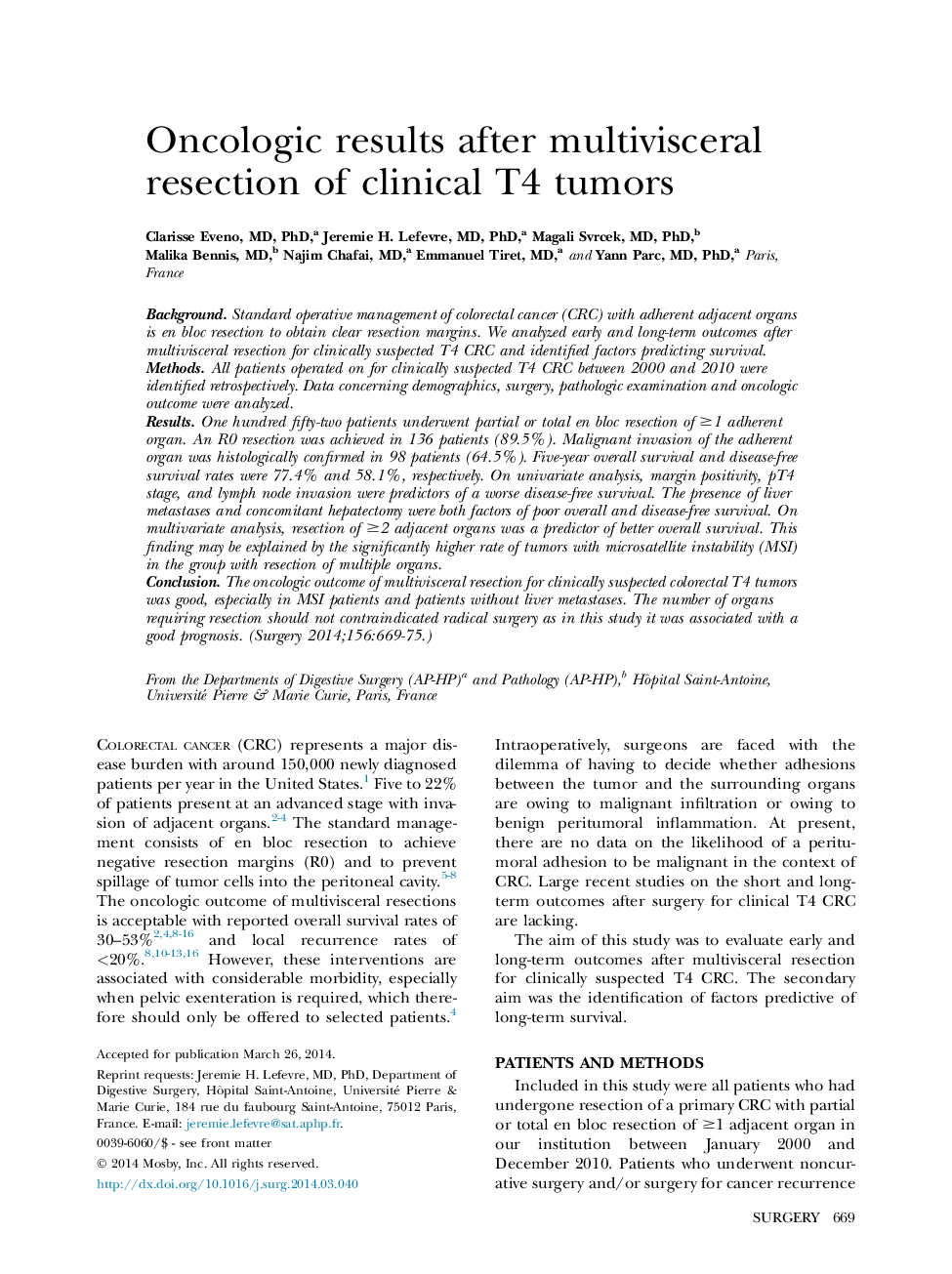| Article ID | Journal | Published Year | Pages | File Type |
|---|---|---|---|---|
| 4307139 | Surgery | 2014 | 7 Pages |
BackgroundStandard operative management of colorectal cancer (CRC) with adherent adjacent organs is en bloc resection to obtain clear resection margins. We analyzed early and long-term outcomes after multivisceral resection for clinically suspected T4 CRC and identified factors predicting survival.MethodsAll patients operated on for clinically suspected T4 CRC between 2000 and 2010 were identified retrospectively. Data concerning demographics, surgery, pathologic examination and oncologic outcome were analyzed.ResultsOne hundred fifty-two patients underwent partial or total en bloc resection of ≥1 adherent organ. An R0 resection was achieved in 136 patients (89.5%). Malignant invasion of the adherent organ was histologically confirmed in 98 patients (64.5%). Five-year overall survival and disease-free survival rates were 77.4% and 58.1%, respectively. On univariate analysis, margin positivity, pT4 stage, and lymph node invasion were predictors of a worse disease-free survival. The presence of liver metastases and concomitant hepatectomy were both factors of poor overall and disease-free survival. On multivariate analysis, resection of ≥2 adjacent organs was a predictor of better overall survival. This finding may be explained by the significantly higher rate of tumors with microsatellite instability (MSI) in the group with resection of multiple organs.ConclusionThe oncologic outcome of multivisceral resection for clinically suspected colorectal T4 tumors was good, especially in MSI patients and patients without liver metastases. The number of organs requiring resection should not contraindicated radical surgery as in this study it was associated with a good prognosis.
